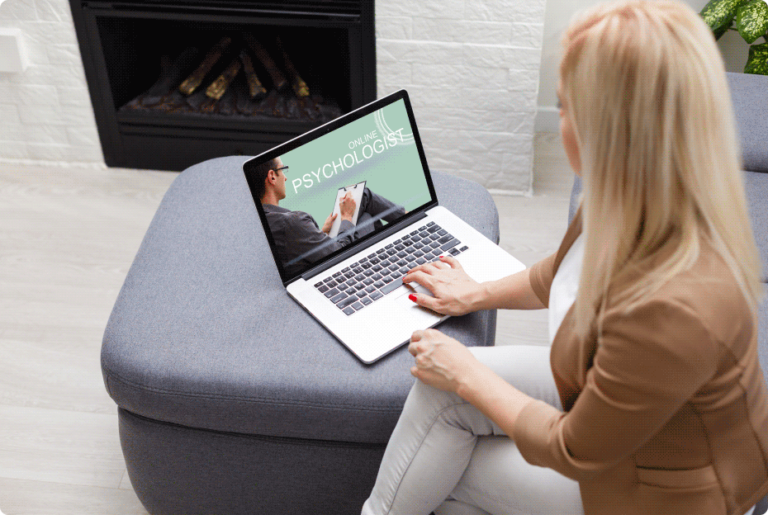By Maria Romaszkan
Compassion towards others can feel as natural as breathing to you, but if you have ADHD, turning that compassion towards yourself can feel foreign or even outright wrong.
In reality, self-compassion can help you feel more at peace with yourself and ADHD, regulate your emotions or help you let go of perfectionism.
The learning process is not easy but well worth the effort.
What is Self-compassion?
Self-compassion is not a new concept, but researchers have only recently started studying it scientifically. One of the pioneers in that work is Kristin Neff, who formulated its three components:
- Self-kindness: Understanding that imperfection, failure and other challenges are a natural part of living; being gentle towards yourself and accepting your limitations instead of being harsh and frustrated at the unfairness of life.
- Common humanity: Recognizing that we’re not the only people suffering or making mistakes — it’s a universal human experience.
- Mindfulness: Acknowledging and observing your negative emotions rather than suppressing or identifying with them.
Our society often perceives it as self-pity or indulgence. The truth is that self-compassionate people tend to be more resilient, healthier and motivated and are more likely to form and maintain healthy relationships.
“Many of us reserve self-compassion as a reward, something we have to earn,” says Dylan Alter, an ADHD coach, teacher and consultant. “But compassion may be the fastest route toward functioning better, and that is why it is essential for someone with ADHD. It’s how we build trust with ourselves and a relationship in which we can understand our needs and meet them. It’s how we learn to cooperate with our ADHD instead of fighting against it.”
ADHD and Self-compassion
Studies show that people with ADHD, more often than not, have low self-compassion. One of the reasons for this may be that they’re more likely to experience a lack of support, constant criticism, and even discrimination or trauma. One study reports that a child with ADHD can “receive 20,000 corrective or negative comments by the time he or she is age 10.” Such experiences result in internalized shame and low self-worth.
Thankfully, practicing self-compassion can improve the emotional health and self-esteem of people with ADHD.
“Many individuals with ADHD also experience self-judgment and negative self-talk,” says Lea Seigen Shinraku, founder of The San Francisco Center for Self-Compassion. “By bringing mindfulness to ourselves and our experience, we can recognize judgmental thoughts and relate to them with greater curiosity and kindness, leading to a more balanced perspective on ourselves. By tapping into a sense of common humanity, we can remember that we are human and that humans aren’t perfect. In these ways, people with ADHD can find a path to greater self-acceptance.”
How to Practice Self-compassion
If you have seldom treated yourself with compassion before, starting can feel disconcerting and even radical. Be patient and gentle with yourself as you explore this topic and do exercises. But attempt to stay with the discomfort and other difficult emotions that may come up. It’s an unpleasant but natural part of the process.
Here are some steps to move through:
• Gently Notice Negative Thoughts
Rachel Ambrose, a Connecticut-based ADHD coach, recommends starting with gentle observation: “Try to adopt a sense of curious regard for your inner dialog before trying to change anything. Think of yourself as a kind of David Attenborough in your own mind. He doesn’t try to alter the feeding habits of red-bellied woodpeckers; he just observes them. Once you’ve spent some time observing your inner dialog, you should better understand where you need to give yourself more self-compassion.”
• Challenge Negative Self-talk
It can take some practice to identify the voice of your inner critic and understand when and why it appears. In such moments, approach it with an open mind rather than aggression and self-judgment. You can ask questions to more clearly define the underlying issues of that critical voice or use a positive affirmation that conveys self-compassion and self-love.
“Create a self-specific mantra to replace that loud, destructive inner critic, (like) ‘I am human, and I am trying’ or ‘This is a learning opportunity,'” says Iffat Shaffiudin, a neurodivergent counselor specializing in ADHD and autism. Encapsulate the mantra with breathing; longer exhalations positively change our emotional state, de-escalating anxiety.
Use the mantra whenever you notice you’re being critical and judgmental towards yourself. Pause, acknowledge the emotion or thought and repeat your mantra.
• Try a Self-compassion Break
This exercise is one of the classic activities created by Neff and can be done anytime you need a moment to ground yourself.
“The self-compassion break incorporates three elements (of self-compassion) through the repetition of three phrases,” says Shinraku. “To do this practice, put a hand on your heart and say to yourself, ‘This is hard,’ ‘I’m not alone,’ ‘It won’t always feel like this.'”
You don’t have to stick to the phrases above. Try different affirmations to find which ones feel right. If you prefer, here is an audio guide for this exercise.
• Treat Yourself Like a Loved One
How would you react if your friend made a mistake or got hurt? Would you say to get a grip and do better? Or would you be caring and understanding? Next time you spill your coffee or forget to send an email, try to treat yourself with the same compassion. For example, you can remind yourself gently that such things happen to anyone and don’t make you stupid, undependable or unlovable.
• Write a Letter to Yourself
Write yourself a letter from the perspective of someone who loves you unconditionally — a person who accepts you as you are with all imperfections that make you ashamed or miserable.
Try to pour as much compassion and love as possible into this letter. It might be difficult and even scary initially, so take your time. It’s not going to be perfect, and that’s OK.
You can also consider starting a journal. It’s a fantastic way to express your feelings and thoughts in a health way.
If you don’t know how to start, here are some self-compassion journaling prompts:
- What do you need at this moment in your life?
- Who makes you feel safe, loved and understood?
- What are the obstacles that stop you from being more self-compassionate?
- Create a list of your strengths.
• Practice Mindfulness
Mindfulness is an integral part of learning self-compassion. It can help with ADHD symptoms, such as lack of focus or emotional dysregulation.
“Mindfulness can be a valuable tool in this regard,” says Shinraku. “It can help regulate challenging emotions by focusing our attention on our physical sensations or some other experience in our environment. And learning to self-soothe can also help people with ADHD cope with challenging emotions.”
You can start practicing mindfulness with guided meditations, body scans, or even spending some time in nature.
However, mindful self-compassion doesn’t have to be difficult or time-consuming.
“The simplest self-compassion exercise is to put a hand or two on your heart and take three breaths,” says Shinraku. “This self-soothing practice stimulates the release of oxytocin and helps our nervous system calm down.”
• Consider Therapy
If you feel you may need professional help in learning how to be self-compassionate, treatments and programs focusing on nurturing self-compassion are available. They may help you build resilience and manage your ADHD symptoms. Some such treatments include:
- Mindful Self-Compassion
- Compassion-Focused Therapy
- Mindfulness-Based Cognitive Therapy
- Acceptance and Commitment Therapy
You can learn more about the teletherapy servicesthat ADHD Online offers in a number of states. We offer the services in these states whether you’ve been diagnosed with ADHD or not.






